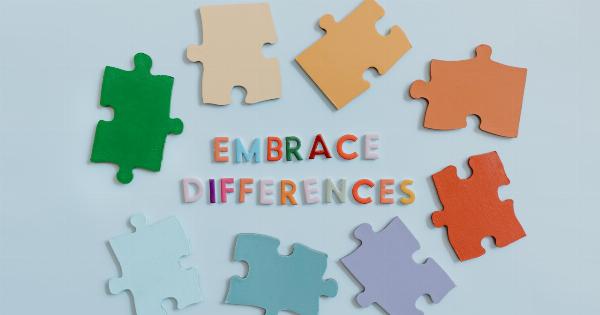Food plays a crucial role in our daily lives. It nourishes our bodies, provides energy, and can even be a source of pleasure. However, not all foods are created equal.
Some can have adverse effects on our health, especially when combined with certain medications. In this article, we will explore the impact of toxic foods on your medications and how you can make informed choices to avoid any potential risks.
1. The Importance of Understanding Drug-Food Interactions
When you take medications, they interact with the chemicals in your body to produce a desired effect. However, these interactions can be influenced by the foods you eat.
Certain foods can alter the way medications are absorbed, metabolized, or eliminated from your system. This can lead to reduced effectiveness or increased side effects of the medications you are taking.
2. Common Food-Drug Interactions
Let’s take a closer look at some common food-drug interactions:.
2.1 Grapefruit and Citrus Fruits
Grapefruit and citrus fruits contain compounds that can interfere with the enzymes responsible for metabolizing many medications. This can lead to higher than usual levels of the drug in your bloodstream, increasing the risk of side effects.
2.2 Leafy Greens and Vitamin K
Leafy green vegetables, such as kale and spinach, are rich in vitamin K. This vitamin is essential for blood clotting.
If you are taking blood thinners, consuming large amounts of vitamin K-rich foods can interfere with the effectiveness of your medication.
2.3 Dairy Products and Antibiotics
Dairy products, such as milk and cheese, can bind to certain antibiotics, making them less effective. To ensure optimal absorption of antibiotics, it is best to avoid consuming dairy products within a few hours of taking your medication.
3. Timing Matters: When to Take Your Medications
The timing of your medication intake can also influence its interaction with certain foods. Some medications need to be taken on an empty stomach, while others require you to eat a meal beforehand.
It is crucial to follow the specific instructions provided by your healthcare professional for each medication to maximize its effectiveness and minimize any potential risks.
4. How to Minimize Food-Drug Interactions
While it may seem overwhelming to navigate the world of food-drug interactions, there are some strategies you can implement to minimize any potential risks, including:.
4.1 Read Medication Labels and Consult Your Healthcare Professional
Always read the labels of your medications and pay attention to any specific instructions regarding food intake. If you have any questions or concerns, consult your healthcare professional for guidance.
They can provide you with personalized advice based on your specific medications and dietary needs.
4.2 Keep a Food-Medication Diary
Maintaining a food-medication diary can be helpful in identifying any patterns or correlations between certain foods and the effectiveness or side effects of your medications.
Share this diary with your healthcare professional during check-ups to enhance their understanding of your unique situation.
4.3 Be Mindful of Food-Drug Interactions
While certain foods may be off-limits due to their potential interactions with medications, it is essential to maintain a balanced diet. Focus on consuming a variety of nutrient-rich foods that are beneficial for your overall health.
Working with a registered dietitian can help you create a meal plan that meets both your nutritional needs and medication requirements.
5. Conclusion
Food can be a double-edged sword when it comes to medications. While some foods may enhance the effectiveness of certain drugs, others can interfere with their absorption or metabolism, potentially leading to adverse effects.
Understanding food-drug interactions and making informed choices can help ensure the optimal effectiveness of your medications. Remember to consult your healthcare professional for personalized advice and always read the labels of your medications for any specific instructions.































